When it comes to managing your business finances, disputed vendor charges can feel like a significant headache. However, addressing these issues doesn't have to be daunting; you just need the right approach. Crafting a clear and concise letter can make all the difference in resolving the situation swiftly and amicably. So, if you're looking for guidance on how to tackle these disputes effectively, keep reading for some valuable tips!
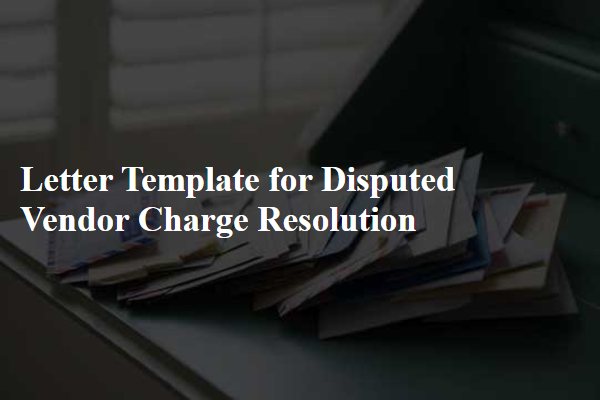
Clear identification of the disputed transaction details.
The disputed vendor charge resolution requires precise identification of the transaction details for clarity. Vendor name, such as XYZ Supplies, alongside the invoice number, for example, INV123456, must be clearly stated. Date of the transaction, noted as September 15, 2023, plays a crucial role in tracking the purchase timeline. Total amount charged, such as $1,500.00, is essential for accuracy in the dispute process. Providing context, like service rendered or product received, enhances understanding of the issue at hand. Clear documentation, including copies of receipts or contracts, bolsters the case for resolution.
Concise explanation of the dispute's nature and grounds.
Disputed vendor charges often arise from billing errors, such as incorrect pricing or undisclosed fees. In many cases, charge discrepancies involve services rendered but not agreed upon, reflecting a lack of clarity on contracted terms. Additionally, duplicate billing for the same service can contribute to disputes, which necessitates a thorough review of invoices. Supporting documentation, including purchase orders and prior communications, can strengthen claims. Timely resolution is crucial to maintain vendor relationships and ensure the accuracy of financial records.
Supporting documentation and evidence submission.
Disputed vendor charges often require detailed attention for resolution. Supporting documentation such as invoices, receipts, and communication records must be organized meticulously. Each document should include relevant details such as transaction dates, amounts, and vendor contact information. For instance, invoices dated September 15, 2023, from Tech Supplies Inc. indicating $250 for equipment should be attached alongside any email correspondence disputing the charge. Clear descriptions of discrepancies must accompany each piece of evidence, elucidating reasons for the dispute like incorrect billing or unauthorized charges. This comprehensive submission facilitates a smoother resolution process with vendors, ensuring clarity and accuracy in addressing the dispute.
Request for prompt resolution and response timeline.
In the context of vendor charge discrepancies, a timely response to disputes is crucial for maintaining smooth financial operations. Disputed charges, often ranging from minor discrepancies to substantial amounts, can disrupt budget planning at organizations. Clear documentation of transactions, such as invoices from suppliers or statements of account, is vital in these cases. Companies that implement efficient resolution protocols often use digital platforms to track communication and updates regarding disputes. Establishing a response timeline--generally within 24 to 48 hours--can significantly enhance transparency and foster trust between vendors and clients. Organizations additionally benefit from maintaining accurate records that facilitate the quick resolution of conflicts while ensuring accurate financial reporting.
Contact information for follow-up and further communication.
In a vendor charge dispute resolution process, having clear contact information is essential for efficient communication. Essential details include the vendor's full name, including any subsidiary or trade names, along with the corresponding business registration number (often found in company records). Include a primary contact person's name, their official position within the company, and a direct phone number, typically available during regular business hours (from 9 AM to 5 PM). An official email address is crucial for quick correspondence and documentation purposes. Additionally, providing a physical mailing address, such as the corporate headquarters located at a specific street address in a recognized city, ensures all parties can exchange written communication as needed. Establishing these points of contact fosters transparency and expedites the resolution of any disputed charges.

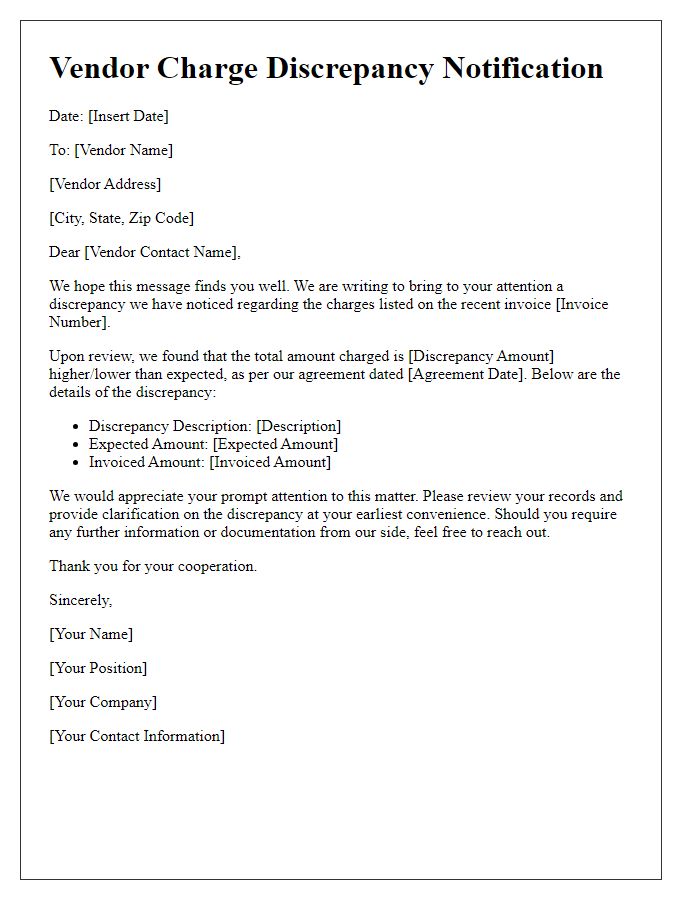
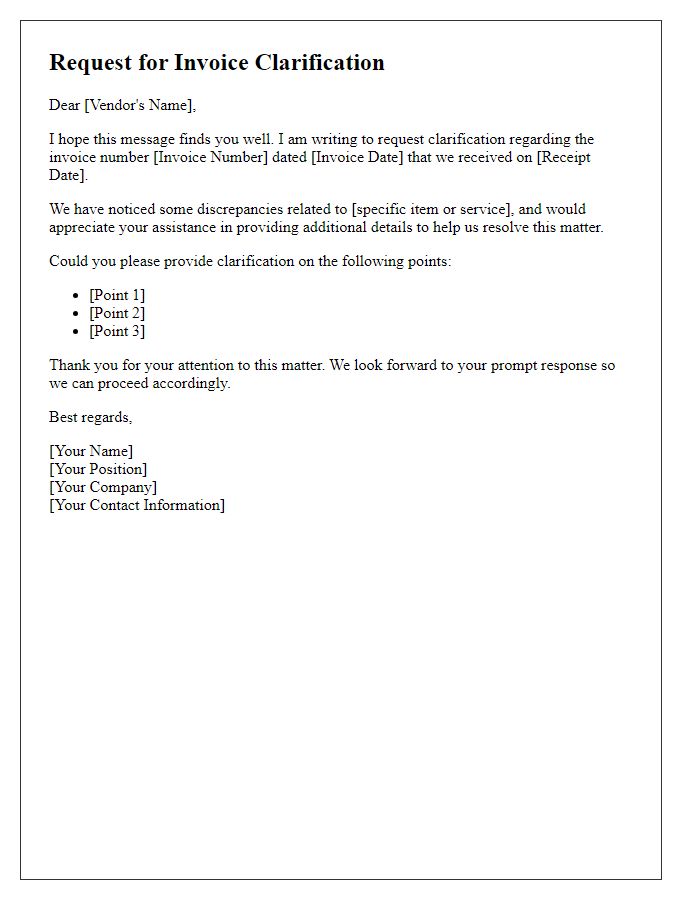
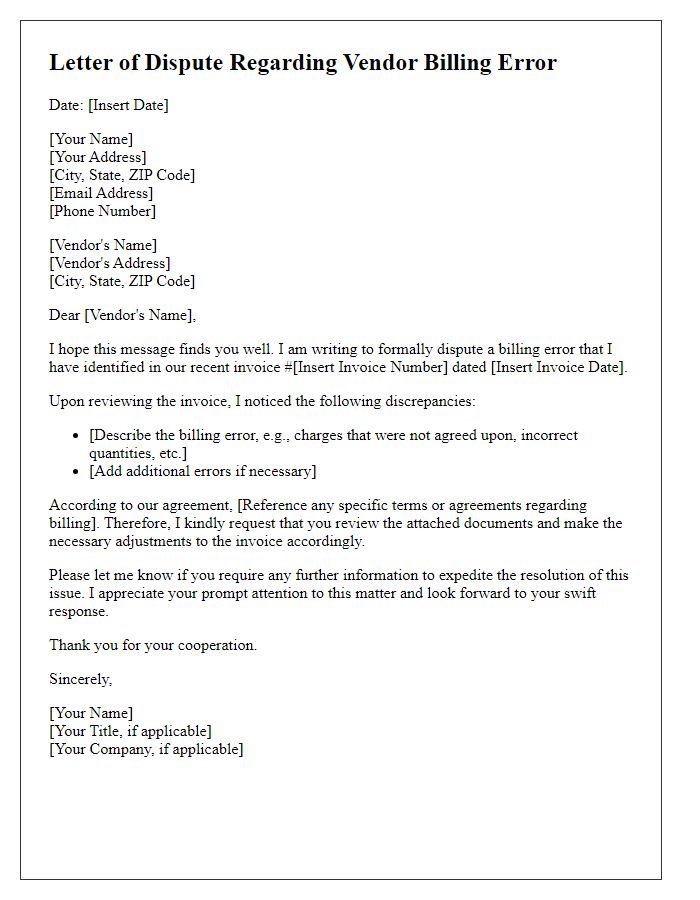
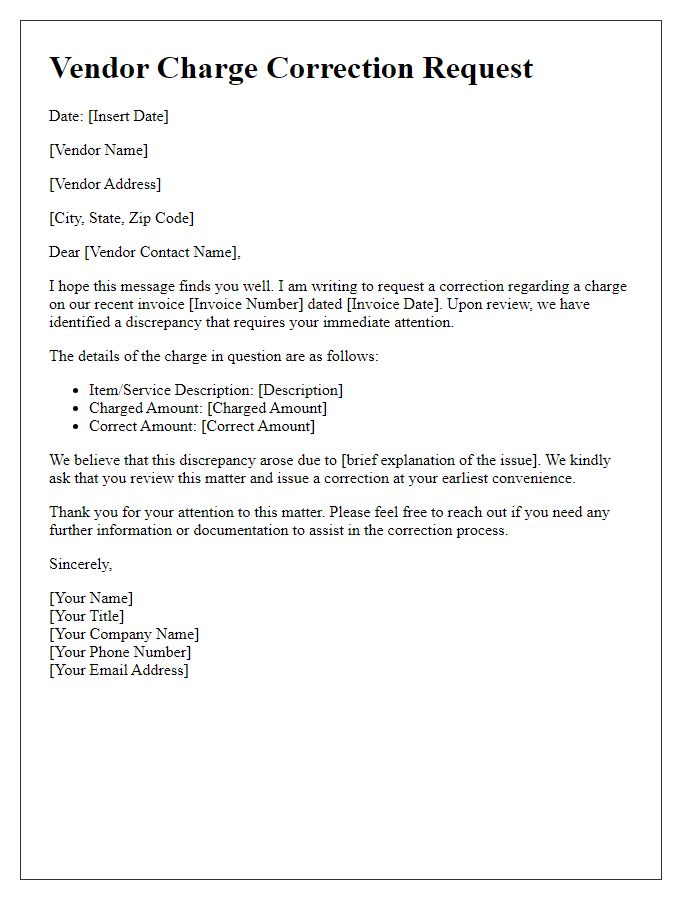
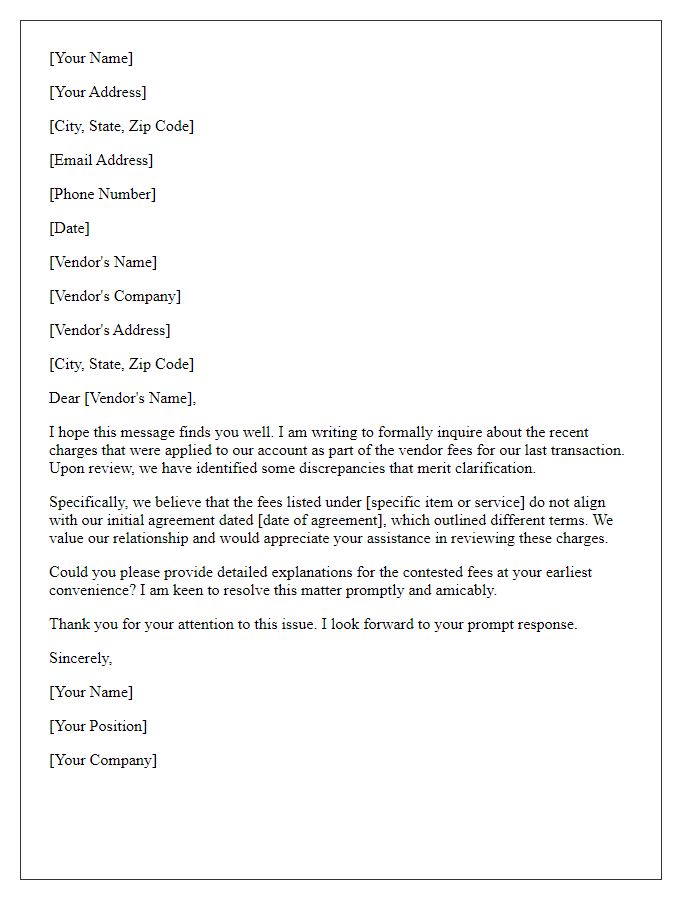
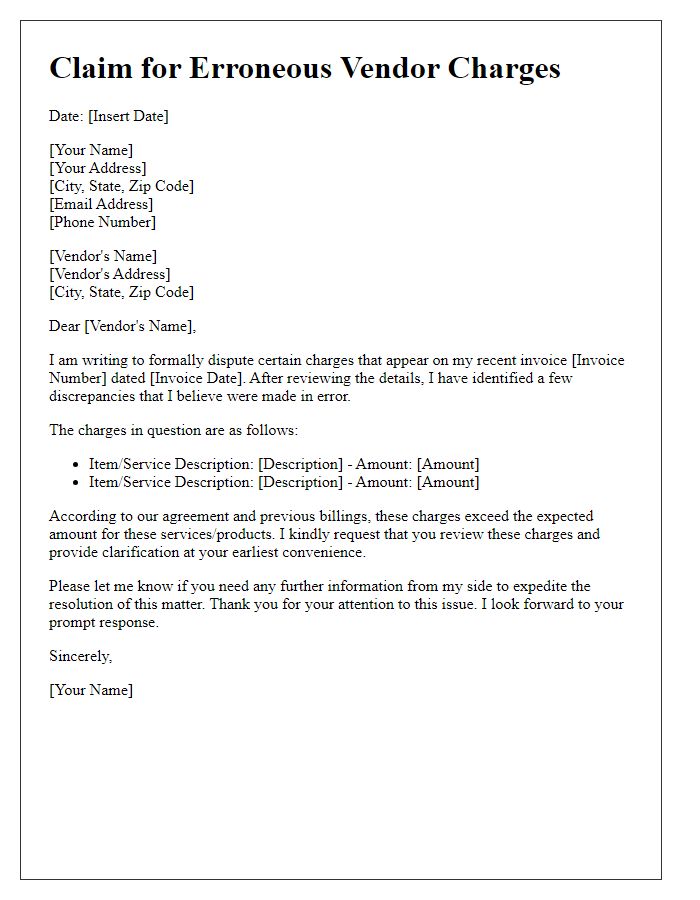
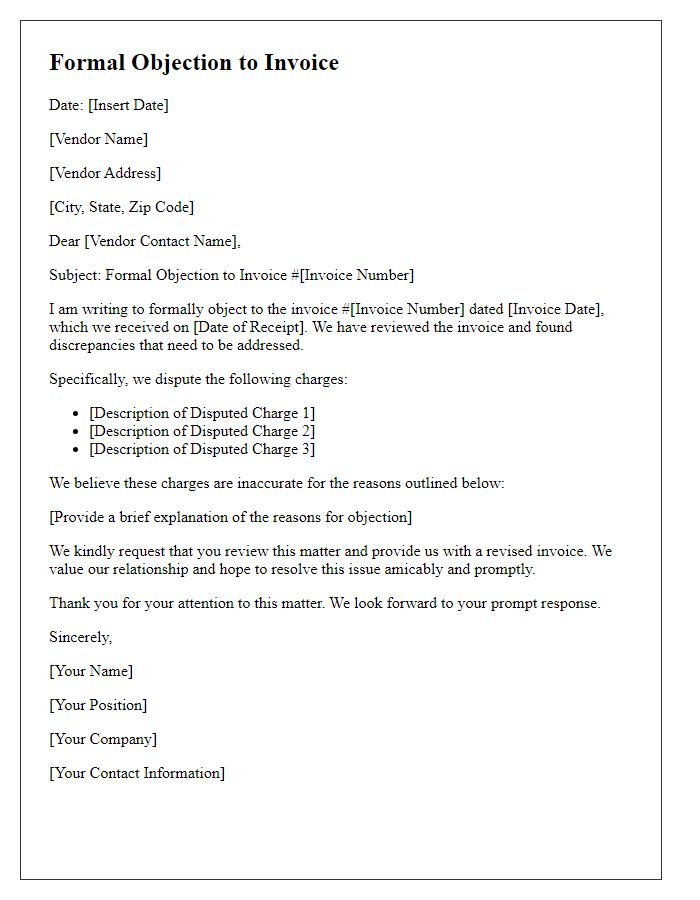
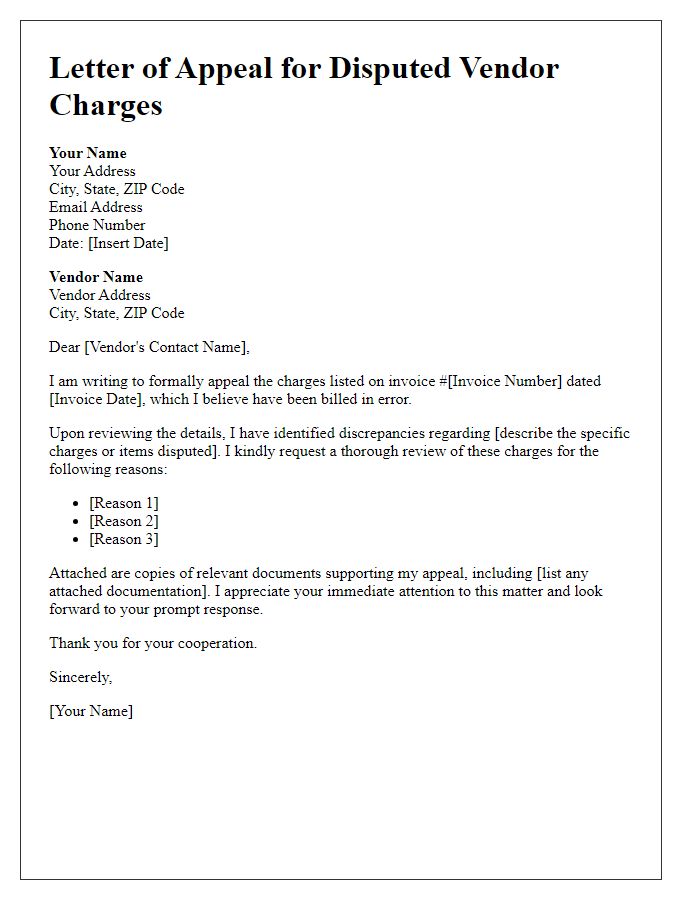
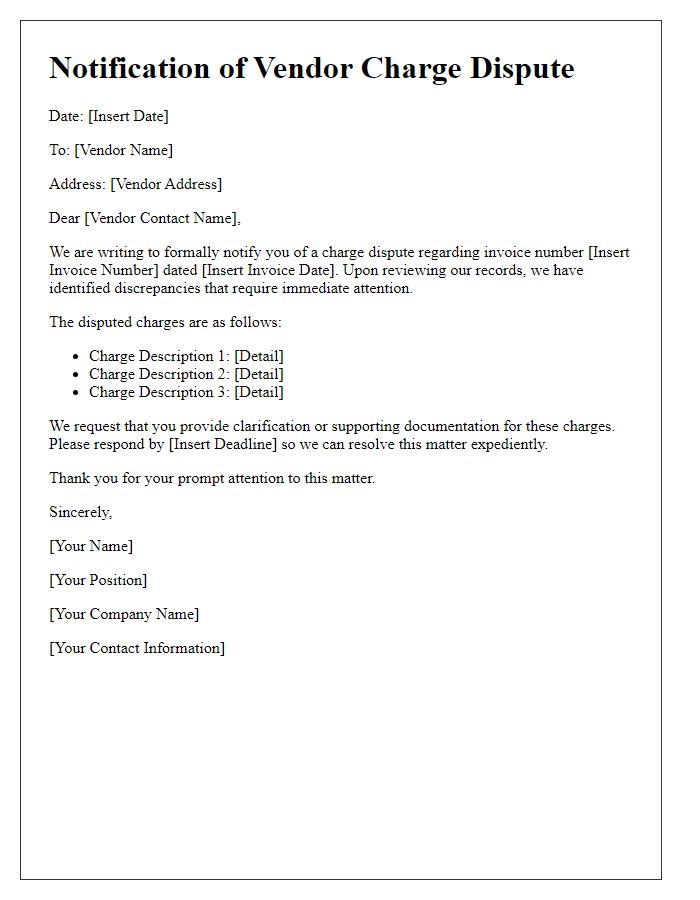
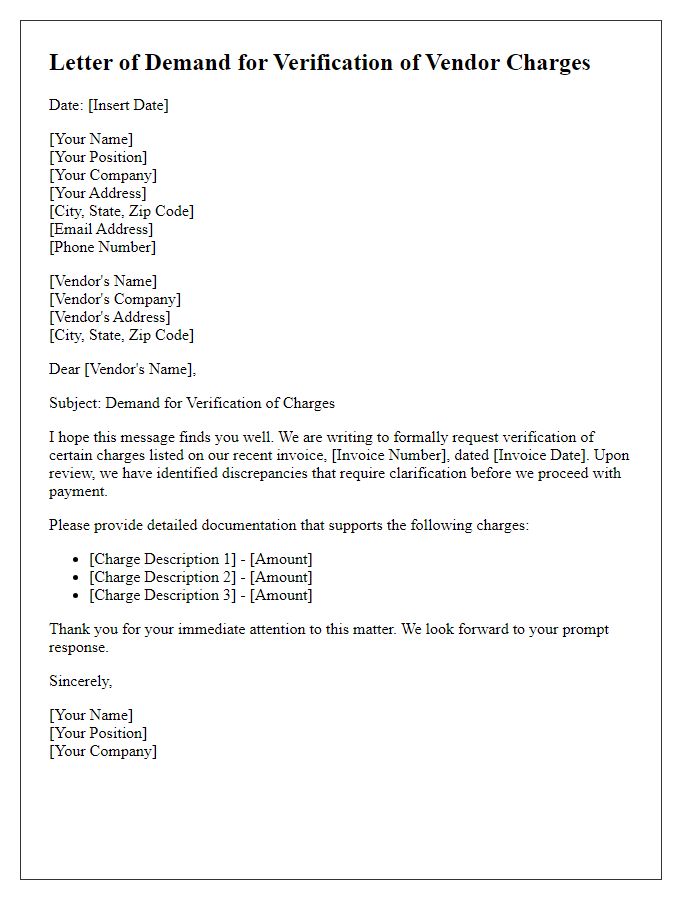


Comments